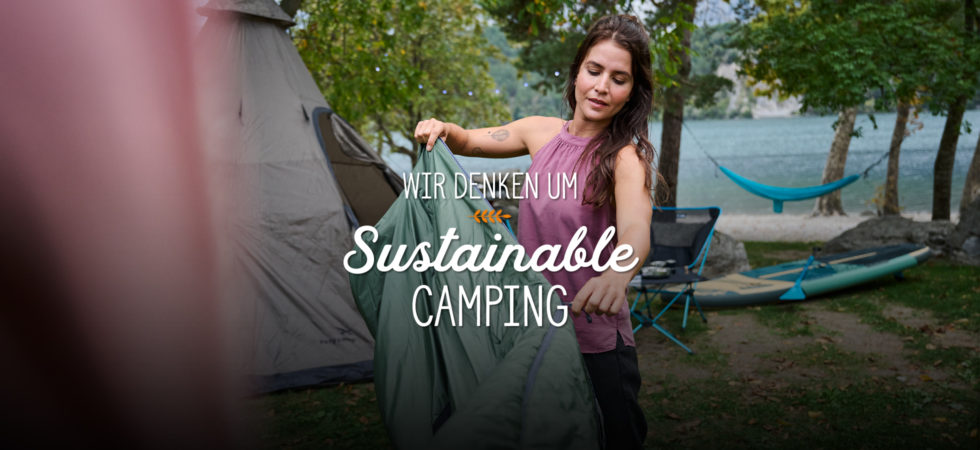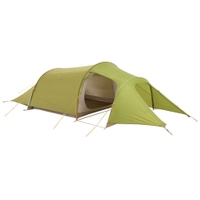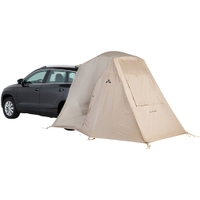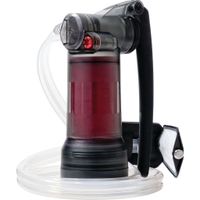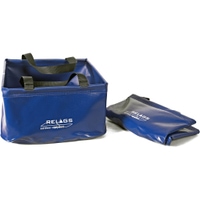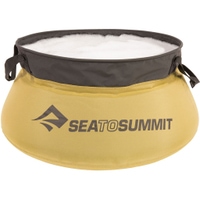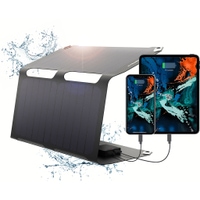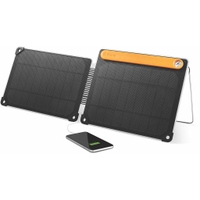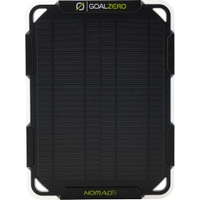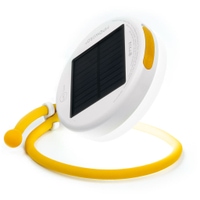Ecocamping: Sustainable travel with camper or tent
Camping is so much more than sleeping outside. It’s a way of life. Enjoying freedom. A temporary getaway. Explore new places and stay where it’s nice. Drinking home-brewed coffee while the sun rises on the horizon. Minimalism is the key. To be on the road with only the most necessary luggage. Camping in harmony with nature is one of the most environmentally friendly ways to enjoy a vacation and adventure. Apart from the fuel consumption of the vehicle. With a few tips and tricks, you can find the right equipment to be sustainable on the road. What to bring? Camper or tent, sleeping bag, reusable cooking utensils, water bottle, garbage bag, clothes, first aid kit and a sense of adventure. By the way, sustainable camping also means shopping locally, preferably unpacked at the local weekly market. Collecting trash on site helps to rid nature of carelessly discarded items, and it’s a great way to explore the surrounding area. Thanks to technical innovations, it is even possible to use self-generated solar power.
Even though the term sustainability is used inflationary and often misused, sustainable camping – or ecocamping – is about leaving as little trace as possible. It’s about minimalism, nature compatibility, waste avoidance, mindfulness and your own responsibility.
Going minimalist: renting or buying equipment?
Camping is like any other hobby: First of all, you need a lot of equipment. But a lot of things can be rented easily – like (fuel-saving) campers, tents or even the whole cooking equipment. Even if it sometimes takes a bit of effort to borrow the equipment instead of owning it. It is worth it, because “Sharing is Caring”! If you still want to buy equipment for your next camping adventure, you should look for environmentally friendly and socially produced products and make sure that the products are as multifunctional and durable as possible. The basic equipment includes the camping kitchen without waste! So kitchen utensils like durable enamel or stainless steel dishes and cutlery or alternatives made from bio-based plastics. Lunch boxes and refillable drink bottles should be part of every outdoor enthusiast’s kit anyway. In our online store we have extra sustainability filters to make it easier to find environmentally friendly and socially produced, durable products.
Eco-friendly campsites and sites
Rental bikes, green electricity or a vegetarian food offer – nice little things can make campsites more ecological. At Ecocamps you can find more than 200 environmentally friendly campsites in Germany, Austria or Switzerland. Here offers are certified with at least one of three environmental awards: Climate-friendly campsite, Ecocamping or EU Ecolabel. Some campsites are a bit more rustic, but often pure nature. Another tip is the pitch finder from Landvergügen, which not only attracts nature and camping fans to Germany’s most beautiful farms, but also supports local hosts. Apps like Park4Night can be used to find public parking spaces for transients or short stays.

Zero waste: packaging-free & local shopping
Not only outdoor highlights can be discovered on vacation, but also village stores, weekly markets, organic farms and increasingly also unpackaged stores. For this, it is worthwhile to have screw-top jars and cloth bags with you to buy dry products such as rice, pasta, quinoa, couscous, muesli or nuts directly without annoying packaging. Spices can also be conveniently portioned into jars or jars. By the way, it doesn’t always have to be expensive product bags or fancy stainless steel containers – you can usually find Tupperware, jute bags and screw-top jars at home that can be used for other purposes on vacation. By the way, it also makes sense to have cloth serviettes and tea towels instead of kitchen roll, reusable to-go cups and stainless steel or glass straws with you. By the way: The popular and admittedly practical aluminum foil is a real killer. Not only is it controversial from a health perspective, but it’s also not particularly good for the environmental footprint. Instead, beeswax towels can be used to store snacks – or a cast-iron pan when cooking over a campfire. This is already a great way to avoid a lot of waste!

Drinking water, consumer water and wastewater
Water supplies can be replenished at campgrounds, public tapping points – and gray water can be disposed of properly here. In addition, many rest stops or gas stations offer a disposal service. An incredible amount of water can also be saved in everyday camping life, for example when showering or washing up. Simply turn off the running water when lathering up and only rinse briefly. For drinking water, there are practical and foldable containers to consume less to no plastic bottles and produce unnecessary waste. For several days off-road, there are useful and safe water filter systems or bottles with integrated filters.
Green business: Where’s the nearest toilet?
A real environmental hog in the camper is… no surprise: the chemical toilet! However, there are more sustainable alternatives, such as partition toilets that don’t require electricity or water. Going to the toilet at campsites or public places is unproblematic. If you are traveling in the outback, you should avoid the vicinity of flowing water and bury your toilet properly. Nothing is worse than stinking piles and mountains of tissues. By the way, it is a misconception that handkerchiefs are ok in nature because they are made from cellulose. In nature, handkerchiefs take up to five years to decompose. By the way, wet wipes are mostly made on the basis of plastic fleece, which does not rot naturally at all.
Dispose of waste and garbage properly
Not only at home but also on vacation “on the green road” should be one of the good deeds. Therefore, as in your own four walls – at home, in the camper and in the tent – waste should be properly separated and disposed of. Campsites offer detailed disposal systems, or collected waste can also be thrown away at rest stops or public disposal points. Who is on the way, does not always find directly the suitable disposal place, then it should be natural to take the garbage and to dispose later correctly. Just like when you’re hiking in a hut, when you’re camping: take your trash back with you. And even better: Pick up your trash and take it with you. For this purpose there are practical Unlitter sets, reusable Dirtbags or simply bags from dog toilets.

Self-sufficient on the road and use solar power
Wake up with the sun and fall asleep with the stars in the sky. It sounds romantic, and it is. The beauty of camping is living and traveling more in tune with nature. The power of the sun can also be used practically for sustainable camping and vacationing. Lightweight and handy solar panels can be used to power devices such as tablet, smartphone, or lamp in real time and charge powerbanks. By the way, battery charging is so emission-free!
Wildlife: Regulations on wild camping
Anyone in Germany who wants to spend the night in the open air away from campsites or pitches encounters legal gray areas. This is because so-called “wild camping” is not permitted. However, the individual regulations are a matter for the individual states – and vary from country to country in Europe. Anyone who goes hiking in Germany with a camper, tent or simply with a sleeping bag or bivouac must first deal with the nature conservation and forest laws of the respective federal state. In general, camping is strictly prohibited in nature reserves, even in coastal areas. On private land or in private forests, prior consent must be obtained from the owners. The so-called right of entry implies that corridors and forests may be entered, as long as one adheres to the general rules of conduct of nature conservation. So a nap in the shade is allowed, but camping is not. However, there are alternatives, such as posted overnight campsites. And that means for only a small contribution to expenses or sometimes even free of charge.
Calculate and compensate your CO2 emissions
On to the next adventure: It is best to travel without a car or camper and by bus, train or bike – keyword: bikepacking. If you can’t or don’t want to do without your own vehicle, you should drive in a fuel-saving way and, for example, make sure that the vehicle’s tires are well inflated, don’t overload the vehicle, avoid short trips and set a moderate speed. With Ecopassenger you can see the impact of your journey on the environment and climate. Here you can compare how environmentally friendly you can make your trip by train, car and you get insight into carbon dioxide emissions, energy resource consumption and emissions of particulate matter, nitrogen oxides and non-methane hydrogens. You can then offset the values determined with various providers. Atmosfair, for example. Through Atmosfair, you can offset the CO2 emissions of your vacation trip with a donation to climate protection projects. You can either offset your desired amount of CO2 or have the corresponding contribution for air travel calculated.
These posts might also be of interest:
→ Outdoor kitchen: the essentials for your next camping trip

